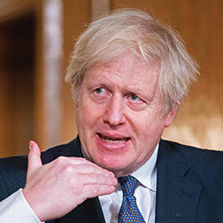
When Alexander Boris de Pfeffel Johnson delivered on his election campaign promise to “Get Brexit Done”—shaped by him into a hard Brexit that included withdrawal from the European Union’s single market and Customs Union—it was always clear that business travel between the U.K. and EU would be affected.
But just how severe the impact would be became clear only with the publication of the 1,259-page EU-U.K. Trade and Cooperation Agreement on Christmas Eve 2020, just seven days before the Brexit transition period ended.
It always had been understood that various restrictions on freedom of movement would apply, not least a cap on visa-free travel of 90 days in any 180-day period. What only emerged in the agreement, however, was that many trips for work purposes from the U.K. to EU or vice versa would henceforth require a visa or work permit.
The rules about exemptions are stupendously complicated, which is part of the problem for travel managers. But as a rule of thumb, any trip which generates an invoice—either to an external customer or for internal accounting—for the traveler’s time means lengthy, expensive paperwork now is required.
A wide range of business travelers, from management consultants to conference speakers to musicians to production crew, are caught by the new rules. Owing to the impact on booking numbers of Covid, it’s hard to identify what is due to Brexit alone, but consultants have told BTN about no longer deploying U.K.-based consultants abroad, while skilled technicians in sectors such as television and events have complained of losing work to EU-based competitors.
For travel managers, post-Brexit complexities have combined with Covid and other factors to send management of mobility compliance shooting up their list of priorities.
Buyers also must deal with another consequence of Johnson’s Brexit: chronic staff shortages resulting from EU citizens quitting the United Kingdom. At Business Travel Show Europe in October, HRS executive Jason Long told his audience that the disappearance of many EU-originating employees (estimated pre-Brexit to have filled 38 percent of hospitality roles in London) was leading to some hotels closing rooms and raising rates.
However, there is a silver lining for U.S.-based travel managers: Sterling still has not recovered its value against the dollar since the Brexit referendum back in 2016, helping to keep rates lower for American visitors.